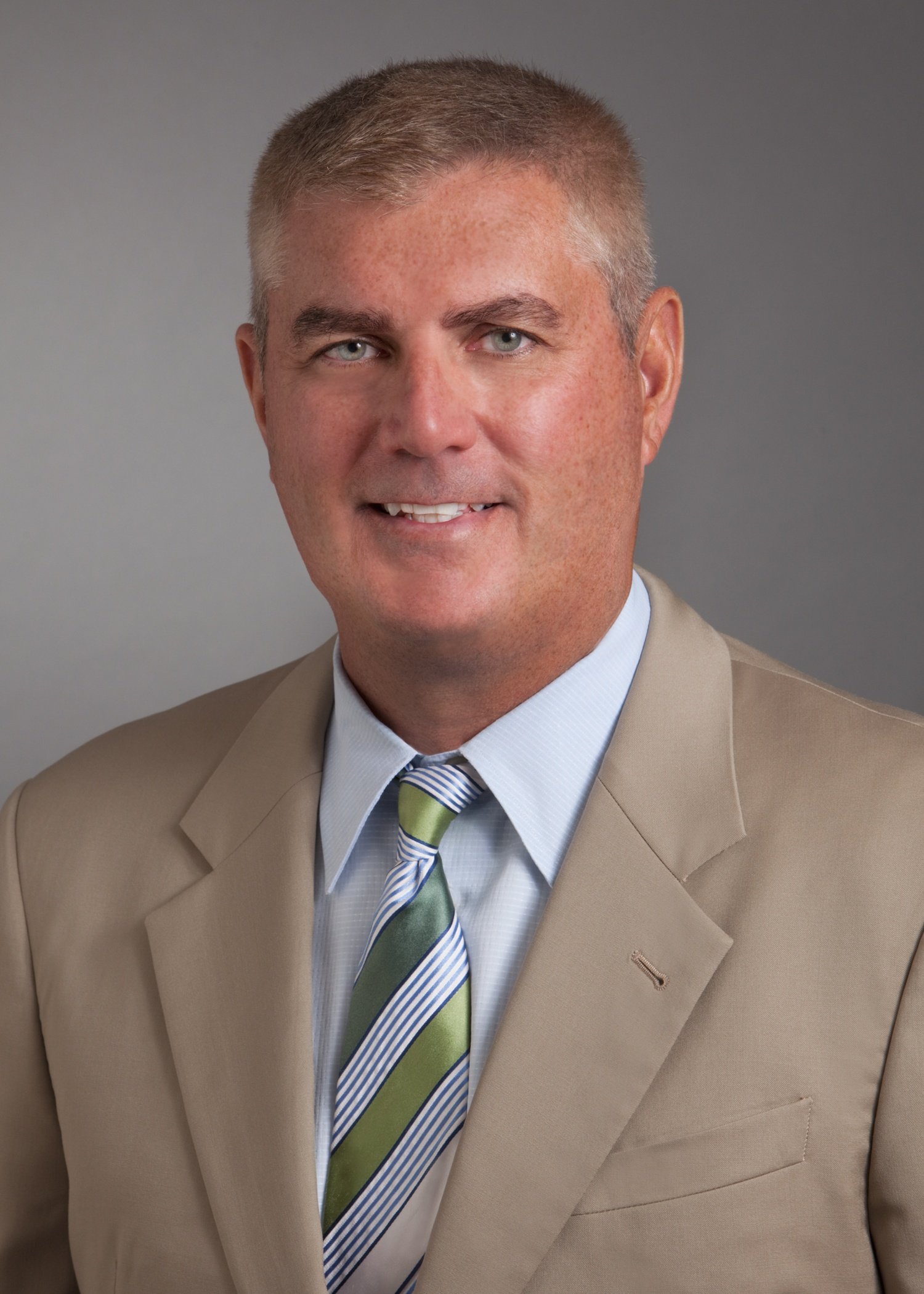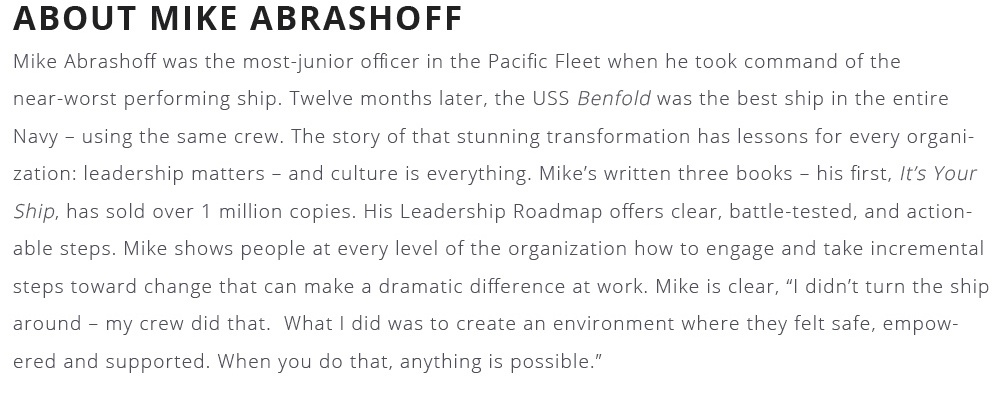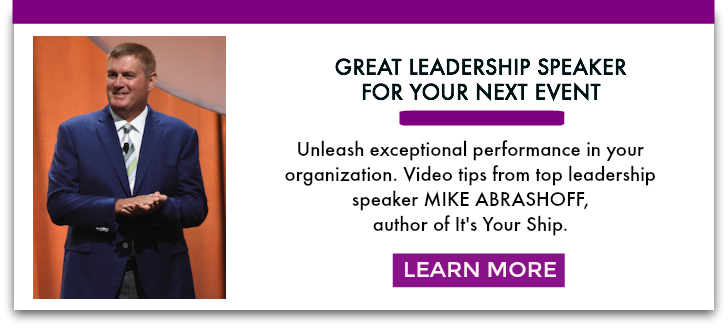Mentor Ship is Steward Ship - Building The Leadership Pipeline
Managing/Leading Change | Leadership | Organizational Culture | Mike Abrashoff
DEVELOPING THE LEADERSHIP PIPELINE
I have worked with thousands of executive teams since I left the Navy and one of the common complaints I hear is where to find the time to mentor the next generation. Schedules are double and triple blocked as it is. “I just don't have the energy or the time,” is the common refrain.
Beyond dealing with the day-to-day demands of our jobs, leaving our organization in better shape than when we found it - stewardship - is one of our primary obligations to our predecessors, to ourselves and to those coming behind us. When your primary competitive advantage is your human capital, how you grow your people and prepare them to take over someday will determine whether your firm or business survives and thrives long into the future. It's vital that each of us learn how to be a mentor as part of our stewardship program.In my career, I have seen many types of mentors. The one I learned the most from is the one who gave me no feedback...positive or negative. To me, that's the worst type of leader to work for. If I'm doing great, tell me. If I'm screwing up, tell me and also give me guidance on how to improve. Just don't be indifferent.
HOW TO BE A MENTOR
I one time worked for a two-star general at the Pentagon. I was an individual contributor working directly for him. My job was to screen all the documents people wanted the secretary of defense to see and get it down from a four-foot stack of paper that came thru the office every day down to something manageable. I had no training for this assignment. I was just thrown in and told to figure it out. I was awful, at first. I would get this four-foot stack of paper down to maybe eight or nine inches. I would then put it in the general's in-basket and from my desk could watch him work. At the beginning, he would throw 90% of what I thought was important into the wastebasket and gave me no feedback on why. Worse, the office was stress-filled and schedule-challenged so there was very little time to sit down and ask for guidance. I was demoralized and dejected and actually thought about resigning.
Then, I decided to train myself to think like my boss. After he went home at night, I would empty his entire trash basket and compare what he threw away to what he sent on to the secretary. I wanted to so badly learn from him and how he thinks that I would sit in meetings and ask myself... "if I'm the general...what decision would I make?" If he made the same decision...it was ..."I can think like a general!!!" If he made a different decision, I realized I needed to fill in the gaps with my training so that I could start thinking more globally. I never challenged him in public but many nights after the secretary left for home and the stress level died down, I would go into his office and tell him that I didn't understand something and could he share with me how he arrived at a certain decision? He never once made me feel that I was a pain but if I were to ask for a formal mentoring session....it would have never gotten scheduled.
He started to trust me. I was anticipating what needed to be done. He realized he could start shedding responsibilities to me. He put me in charge of trip planning, security, and communications. I was ecstatic. My portfolio was expanding. His wife actually thanked me. He could now leave the office at a more decent hour and finally have some family time.
I knew I had arrived when the secretary of defense said that he considered me and the general interchangeable. That was not just good for me and the general, it was a positive development for the organization.
MENTORING CREATES SUCCESSFUL STEWARDS
Here were the benefits of my modified mentoring program:
- Less stress for the general
- Better results for the office
- Greater satisfaction for me and the confidence to go be a better commanding officer
- I developed more knowledge and experience to train my officers better. Today, two of those officers are admirals and two more will probably be selected for admiral next year. I helped train the next generation of leaders because I figured out how to do mentoring as part of our everyday life instead of trying to wedge it into a packed schedule.
The stewards of any organization are its capable future leadership. There’s no better way to create that leadership pipeline than by committing the organization to mentoring its next generation of leaders.

.png)

.jpg)


